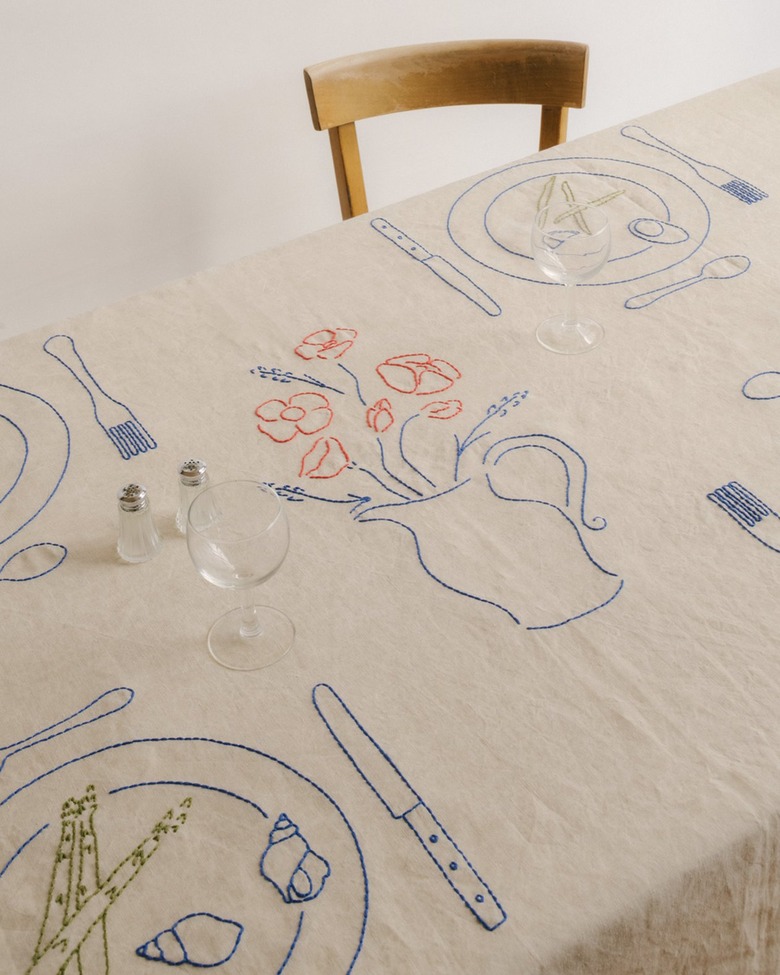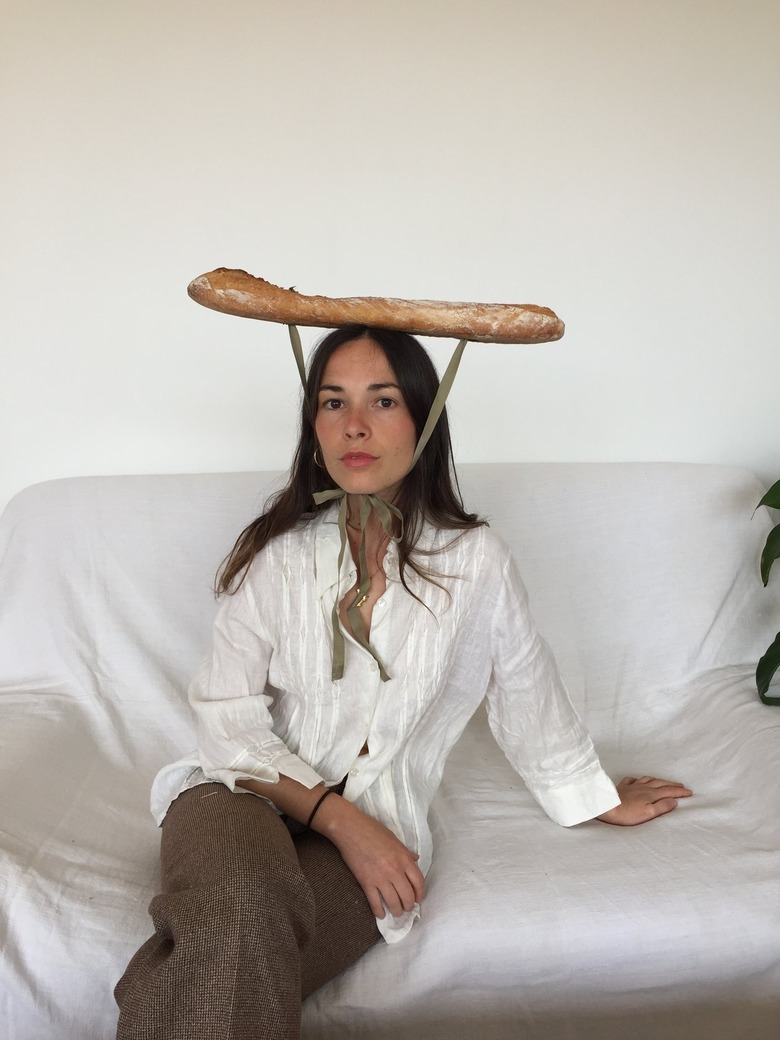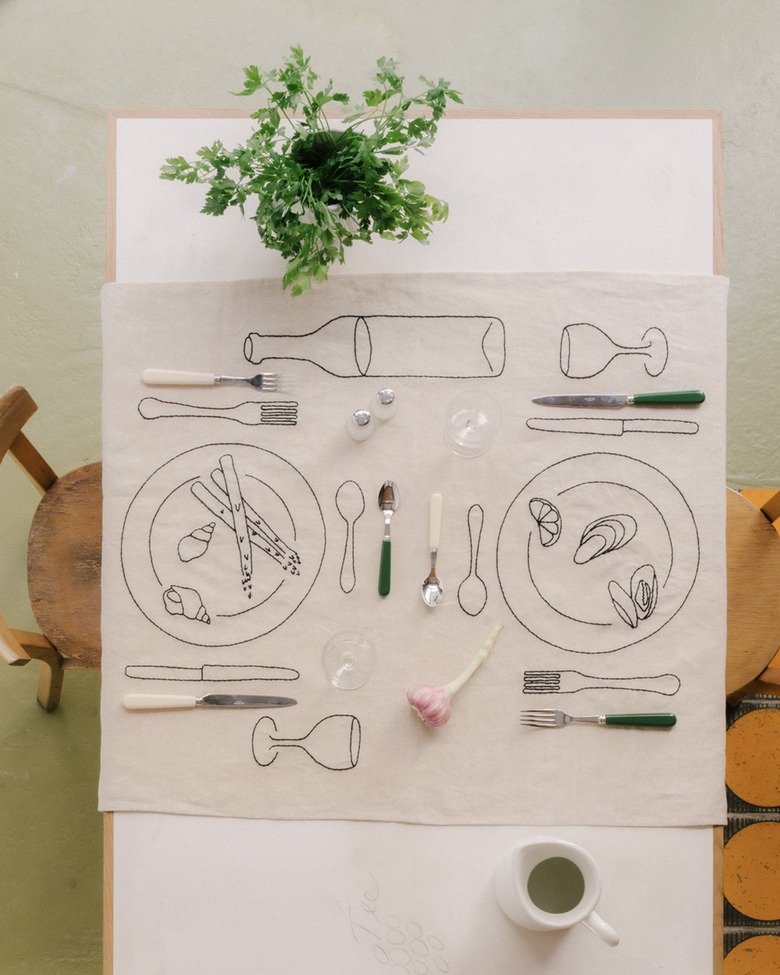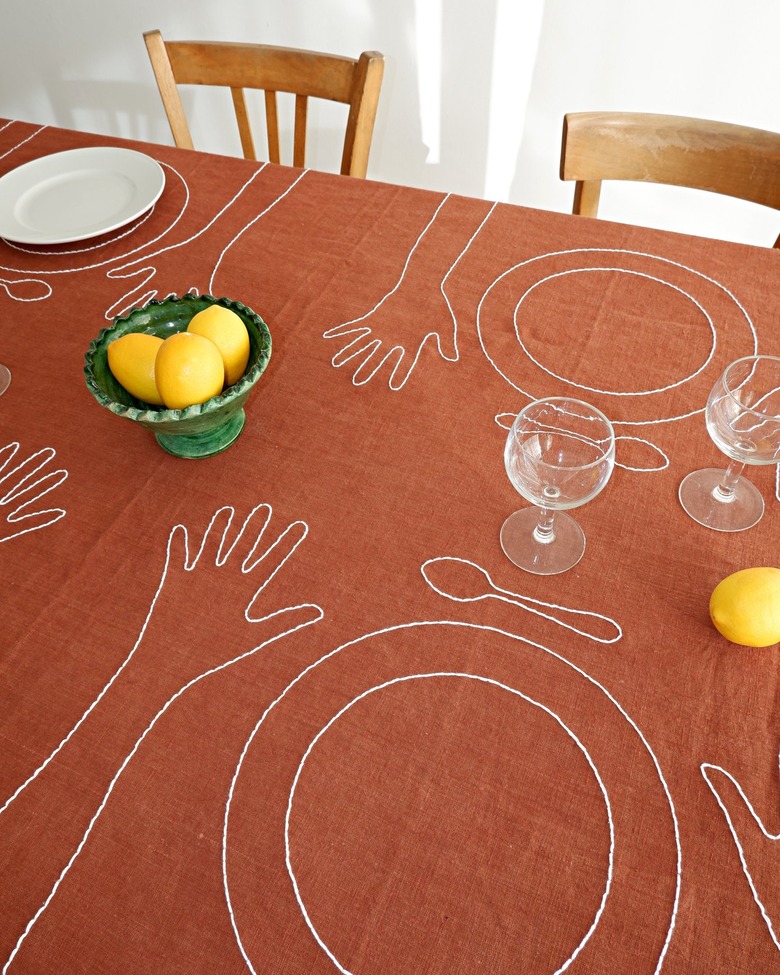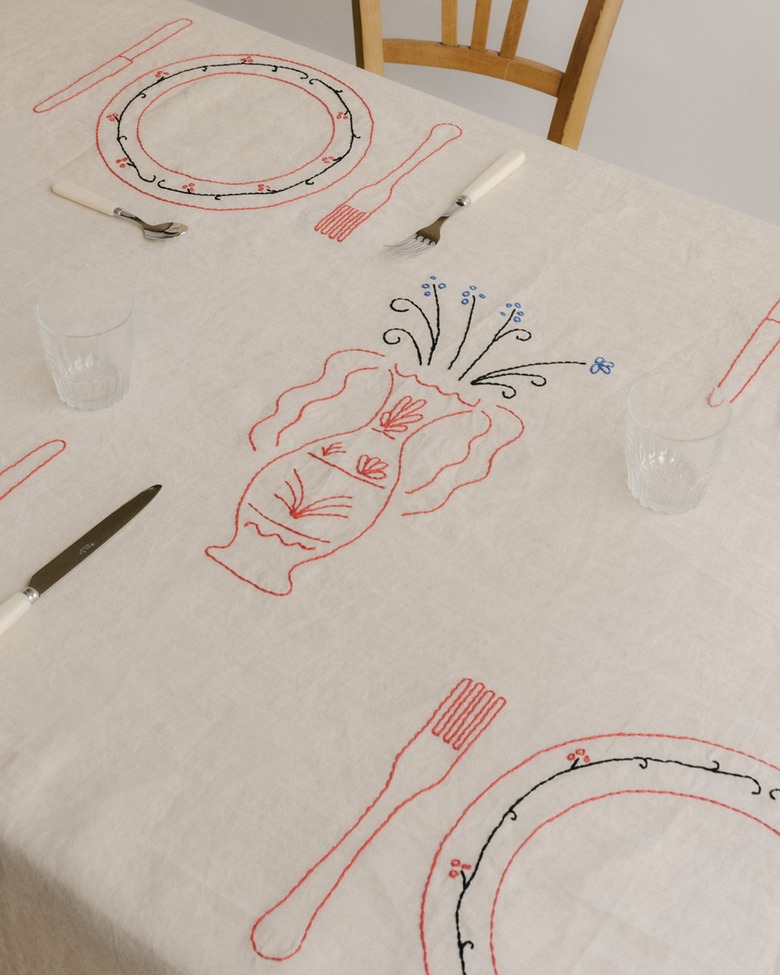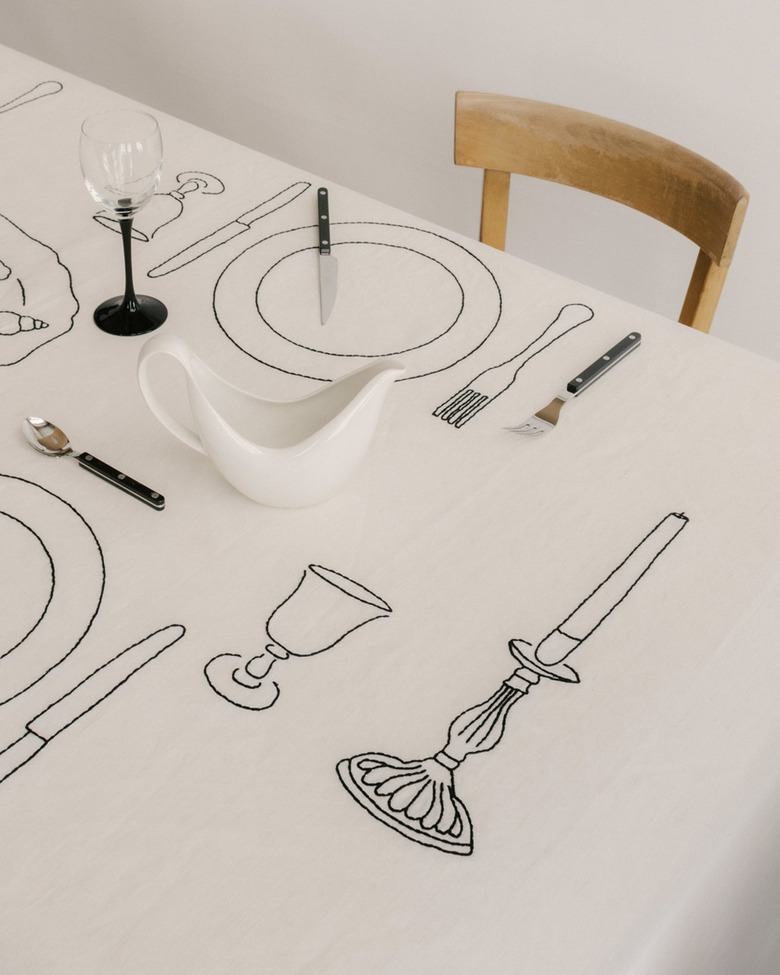Why Artist Sarah Espeute Describes Her Iconic Embroidered Linens As "Sensitive Works"
Œuvres Sensibles translates to "Sensitive Works" in English. Founded by 31-year-old French artist Sarah Espeute over three years ago, the Marseille-based brand is known for using minimal embroidery to convey maximum feeling, beautifully portraying the idea that the simple can be mighty.
Born in Arles, France, Espeute hasn't followed one singular path on her journey to establishing Œuvres Sensibles. After completing two years of graphic design studies at the ENSAAMA School of Art and Design in Paris, the creator went on to set up a company that specialized in Riso printing. Using secondhand printers, this work was first based in the artist's living room, and later, in a shop in Paris.
"[Riso] is a technique similar to screen-printing that diverts office printers for artistic purposes — posters, fanzines," Espeute tells Hunker. "I discovered it in London and I loved the idea of diversion, the use, the rendering."
After four years, Espeute found herself spending more time printing for others and less time developing her own ideas. She decided to move on from the practice, and in 2016, she formed the design firm Klima Intérieurs with sculptor Léa Bigot. However, the two later separated so they could work on their own ideas. That's when the seeds of Œuvres Sensibles were sown.
"I was in a moment of reconversion where I was trying to discover myself as an artist," the designer explains. "I wanted to do things that made sense to me — that expressed my personality, my sensitivity. I find that this defines my way of conceiving things, as sensitive works."
After teaching herself how to embroider and experimenting with the medium, the artist began utilizing two types of embroidery for her sensitive works. In addition to traditional handmade embroidery, Espeute uses a 19th-century manual machine to employ a Cornely chain-stitch technique. She has also recruited other independent embroiderers in Marseille to assist, and as a result, has formed a community of embroidery lovers at the foundation of Œuvres Sensibles.
"I usually start with an idea that has been maturing in my head for a long time," says the designer, describing her creative process. "It's an idea that appeared one day and that I refined in my head. I then try to materialize it in a drawing by being more precise on the shape, color, and materials. I let it mature again. If the idea still obsesses me after several months, even several years, I can decide to realize it, but only if the moment makes sense — the right context. I like my ideas to have a real context, so that they have more depth. It can take a while!"
What results from this time-consuming method is a collection of hand-embroidered linens — most notably in the form of tablecloths and napkins, but the artist's range has grown to include pillows, chairs, and lamps. Espeute has especially become known for her cloths featuring embroidered tablescapes that include plates, cutlery, food, flowers, and even hands. These pieces essentially provide a template for table design (and take the guesswork out of it for overwhelmed hosts).
Espeute's goal is to give value to everything she works with — including the variety of vintage linen and cotton sheets she collects from all over France. With sustainability in mind, all of Œuvres Sensibles' works are developed on these pre-owned pieces. Some are between 50 and 100 years old, so each fabric has its own history that can be kept alive beneath an embroiderer's hands.
"We consume too much without any feeling and we throw away more easily," the artist states. "Today, I think we need to see a meaning in what we create. By appealing to my creativity, I try to provide a personal emotion to the object, to bring it sensitivity and to elevate it to the status of 'a piece of art.' Quite simply, to make us love it all its life!"
That is exactly what Espeute wants her customers to take away from her work: "an object that you want to keep all your life and that you would like to pass on."
In the future, the artist shares that she will be developing a line of bedroom products — ones she hopes to stage in actual hotels. In the meantime, if you'd like to have one of Espeute's sensitive works in your home, you can shop her current items here. She does ship all over the globe, but make sure you keep extra taxes and customs duties in mind when purchasing.
